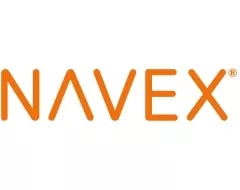That is a question that should not be asked. WhistleB believes that an anonymous whistleblower should remain anonymous if that is what they prefer. And even if the question is asked, it should be close to impossible to answer. An organisation's Code of Conduct, leadership communication, organisational culture and whistleblowing solution should all underline that people who dare to blow the whistle, including anonymous whistleblowers, are valued.
Why is anonymity important?
We have written about this issue many times – in fact permitting whistleblowers remain anonymous is one of our bugbears, and the reason we started WhistleB in 2011. At that time, we were frustrated by the lack of whistleblowing solutions on the market that provided the right level of security to keep the whistleblower anonymous.
But why is anonymity important? Even though there is a general paradigm shift towards greater transparency and openness that is making attitudes to whistleblowers more positive, people are still afraid to sound the alarm. One European Commission survey found that only one out of four witnesses to corruption reported it. 75% of us remain silent. The main reason? Fear of retaliation – the subject of frequent media headlines.
Blowing the whistle is stressful. The whistleblower may be very close to where unethical behaviour is being conducted, they may fear for their career or worse, their own safety. Even if promised confidentiality, and even if legally protected, identifying themselves is still too much of a risk. So, unless there is an option for them to report as an anonymous whistleblower, they never dare to take the step.
Why anonymous whistleblowers are good for the organisation
What's in it for an organisation? The kind of information that can be unearthed by a whistleblower may otherwise be almost impossible for leaders to access. Accepting reports from anonymous whistleblowers increases the likelihood that such information will be forthcoming. In turn, leaders can put a stop to the related misconduct sooner and thereby reduce potential losses.
Technical whistleblowing solutions can safeguard anonymous whistleblowers
Security matters – because in whistleblowing trustworthiness is everything. Any whistleblower wanting to remain anonymous needs to trust that the organisational whistleblowing solution will safeguard their anonymity, all the way from reporting through dialogue, any follow-up and investigation.
So, what is needed for a whistleblowing solution to guarantee that a whistleblower will remain anonymous just that?
- An external whistleblowing solution that is separate from an organisation's own IT environment is an efficient option.
- The solution should undergo regular professional penetration and information security testing. A whistleblower should not be tracked and secure encrypted systems and messaging should be used.
- The whistleblowing solution should include a communication channel that enables follow-up dialogue with an anonymous whistleblower. This allows the whistleblower team to build trust with the whistleblower so that they can use the anonymous tips more effectively or ask for essential follow-up data. Investigation documents and communication should be maintained within the protected whistleblowing solution.
Will new laws help to protect the anonymous whistleblower?
More laws are being passed in different parts of the world that give whistleblowers greater protection. Unfortunately, many laws fall short of mandating anonymous reporting. This includes the new EU whistleblower protection law. Consequently, it falls to organisations and companies to be proactive in allowing and giving equal protection to anonymous whistleblowers.
Want to find out how WhistleB can help you with a whistleblowing solution that handles reports from anonymous whistleblowers?
The content of this article is intended to provide a general guide to the subject matter. Specialist advice should be sought about your specific circumstances.

